





August 8, 2025

The Benefit of Using Marginal Crops for Livestock feed - a short video example of how the incentive from MASC yields more revenue per acre for producers growing cereal crops via District 7 Director Tyler Fulton (originally created in 2021).

Minister MacDonald concludes first trade mission to strengthen ties and promote Canadian agriculture and agri-food in the Indo-Pacific




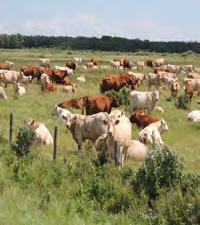
Producers facing feed shortages due to poor hay production are encouraged to explore all available options including assessing the economic viability of harvesting hay on marginal Crown land. With calf prices at record highs, optimizing feeding strategies is essential to avoid sacrificing valuable weight gain.
Wildlife Management Areas (WMAs)
WMAs and wildlife-coded parcels are currently available for casual haying and grazing permits, based on habitat management plans. Each year, agriculture and wildlife teams work together to align these permits with ecological objectives, ensuring responsible use of the land.
As of July 31, 2025, some WMA parcels remain available for casual permit.
WMAs are one tool in our broader response to feed shortages. While not a complete solution, they can provide valuable support to some producers during challenging conditions.
Agricultural Crown Lands (ACL)
Standard Agricultural Crown Land parcels are available for casual permit.
ACL permits are managed to support agricultural use while maintaining land health and productivity. Casual use of ACL parcels is facilitated through a permit system that allows short-term access for haying and grazing, providing flexibility for producers responding to feed shortages.
Interested producers can:
1) Refer to Manitoba’s Wildlife Management Area Map to locate WMAs.
2) Contact the local Agricultural Crown Lands Farm Production Extension Specialists for available parcels.

Managing Dry Conditions and Drought information on managing crops and livestock, farm management calculators, financial assistance programs, monitoring and seasonal reports and mental health and wellness resources.
Hay Listing information on hay for sale and to list hay available for purchase
Livestock Webpage information on what’s new, resources and upcoming events.
Manitoba Agricultural Services Corporation (MASC) information on insurance and program assistance. Contact your MB Agriculture / MASC Service Centre for program details, including recently announced support measures to aid Manitoba’s livestock producers affected by drought conditions.
Seasonal Reports seasonal updates that pertain to crop and forage production.
Weather Conditions and Reports year round data from over 100 weather stations across agro-Manitoba that monitor air temperature, relative humidity, barometric pressure, precipitation, wind speed and direction, solar radiation, soil temperature, and soil moisture.
For more information, contact the department: Online: www.manitoba.ca/agriculture
Email: agriculture@gov.mb.ca
Phone: 1-844-769-6224
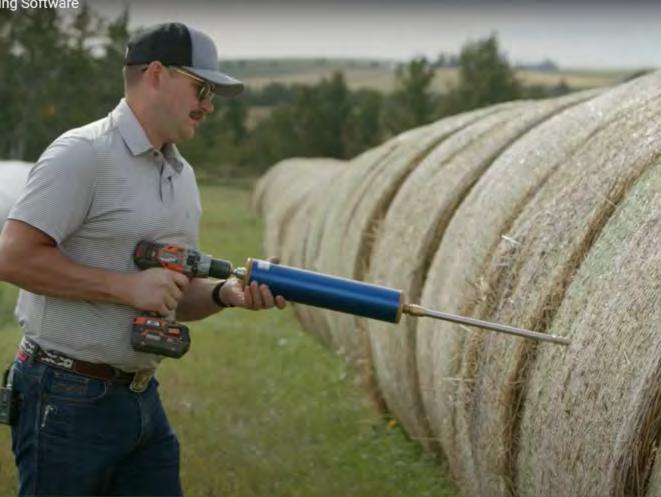
You cannot manage what you don’t measure. Feed testing is critically important to ensure your herd’s nutritional requirements are being met to support production. Feed testing and ration balancing also helps prevent costly overfeeding. Check out this resource from the Beef Cattle Research Council:
https://www.beefresearch.ca/blog/feed-testinga-tool-for-better-returns/
When faced with reduced supplies of good quality hay due drought, many producers seek alternative feeds for their livestock. While these alternative feed sources can offer flexibility, feed testing and advice from a livestock nutritionist is recommended to ensure nutritional requirements of the type of cattle being fed are met. Check out the following resource from the Beef Cattle Research Council for considerations when using alternative feeds:
https://www.beefresearch.ca/topics/alternative -feeds/
Alternative or non-conventional feeds can be an economical means for beef cattle producers to supplement forage and grain inventories.
However, due to variability in the supply, nutrient composition and quality of these feed ingredients, there can be pitfalls if not properly managed. Have a listen to this episode of the Canadian Beef Cattle Podcast for tips on making use of different alternative feeds:
https://open.spotify.com/episode/0hsfECxYMsb 0ta0JHwon67?go=1&sp_cid=a2b2ebaa1e65940f def68f683c932de9&utm_source=embed_player _p&utm_medium=desktop&nd=1&dlsi=adc2a2 537f324cf6
New to feed testing and ration balancing? Feed testing and ration balancing are good practice normally but are even more important in times of feed shortages and when making use of alternative feed sources. The following link is your one stop shop for information and instructions on feed testing including how to take and submit a sample, and how to interpret the results:
https://www.beefresearch.ca/tools/feedtesting-analysis-for-beef-cattle/
When considering salvaging crops for feed, beef producers need to consider accessibility, availability, yield, transport costs, potential antinutritional factors or other animal health impacts, and feed quality. The value of crops for livestock feeds calculator was developed to help beef producers work with their neighbors to determine a value for salvaged crops.
https://view.officeapps.live.com/op/view.aspx?s rc=https%3A%2F%2Fwww.beefresearch.ca%2Fc ontent%2Fuploads%2F2022%2F04%2FValue_of _Crop_for_Feed_locked.xlsx&wdOrigin=BROWS ELINK
(August 7, 2025 Government of Canada News Release) The Government of Canada has initiated consultations with Canadian industry, businesses and labour representatives, to develop the regulations for the Free Trade and Labour Mobility in Canada Act.
The Free Trade and Labour Mobility in Canada Act will reduce federal barriers to interprovincial trade and labour mobility by recognizing comparable provincial or territorial regulatory requirements. It ensures that Canadian workers and businesses face fewer obstacles as they move goods, provide services and pursue opportunities to work across the country.
As part of the implementation of the Act, regulations are being developed to specify requirements, including what makes federal requirements comparable to existing provincial and territorial ones, as well as any potential exceptions to the Act to protect the health, safety and security of Canadians, their social and economic well-being and the environment.
The Government of Canada will hold regional and national consultations with industry, businesses and labour representatives over the coming month, as a critical piece in the development of those specific regulations.
Interested parties are welcome to provide input in two ways:
1. Regional engagement: The government will meet with stakeholders, industry and labour representatives through a series of roundtable meetings. Inperson and virtual meetings will be held across the country in cooperation with the Canadian Chamber of Commerce. Sessions will include hundreds of representatives from a wide range of
key industries including agriculture and agri-food, manufacturing, labour and transportation.
2. Written submissions: Interested parties can also submit their feedback directly in writing by August 22, 2025.
These consultations will help us understand the needs of industry, businesses and labour and directly inform the drafting of the final regulations of the Act. The final regulations will be published in fall 2025, in order to operationalize the Act.
Quick facts
• Trade within Canada is an essential driver of the Canadian economy. Eliminating barriers to internal trade will lower prices on everyday items, give Canadians greater choice, and increase productivity, adding up to $200 billion to the economy.
• The Free Trade and Labour Mobility in Canada Act is part of the One Canadian Economy legislation, which received Parliamentary Royal Assent on June 26, 2025, and aims to build a stronger, more competitive, and more resilient Canadian economy.
Related products
• Legislation to build One Canadian Economy receives Royal Assent
• Backgrounder: Implementation of Bill C-5: One Canadian Economy
• Government of Canada introduces legislation to build One Canadian Economy
• House of Commons passes One Canadian Economy Act
• Backgrounder: One Canadian Economy: An Act to enact the Free Trade and Labour Mobility in Canada Act and the Building Canada Act
• Final Text of Bill C-5
(August 7, 2025 Province of Manitoba News Release) The Manitoba Wildfire Service advises that as fire danger remains high to very high across much of the province today, the provincial state of emergency declared on July 10 has been extended until Aug. 22. Some areas may see brief relief from wildfire activity due to rain, but storm activity also brings the risk of more lightning starts.
Manitoba Wildfire Service has cancelled all burn permits for the Burn Permit Area, with no new burn permits issued at this time. Land-based travel is permitted, unless closed by Parks or other closure orders. Those entering a fire boundary by aircraft will require a travel permit. To view active fire boundary maps, visit www.gov.mb.ca/conservation_fire/FireMaps/fireview/fireview_map.html. To apply for a travel permit, contact a Natural Resources and Indigenous Futures district office and visit www.gov.mb.ca/nrnd/co/index.html to find a location.
Manitoba remains under a provincial state of emergency, under the Emergency Measures Act due to a wildfire season that is now the worst on record in the past 30 years, with more than 1.55 million hectares (ha) of area burned in the province.
For updates on park closures, visit www.manitobaparks.com
The primary evacuation reception centre in Winnipeg is located on the third level of the RBC Convention Centre at 375 York Ave. Evacuees can attend this location to register with the Canadian Red Cross, and to access supports and services. Evacuees can also call 1 (800) 8636582.
In response to the need for shelter for wildfire evacuees, Emergency Social Services continues to work with the Canadian Red Cross to operate
congregate shelters in Winnipeg at the RBC Convention Centre at 375 York Ave and the Leila Soccer Complex at 770 Leila Ave.
For the safety of both evacuees and frontline and firefighting personnel, the province is reminding Manitobans not to enter areas under a mandatory evacuation until local authorities identify the situation is safe and evacuees are able to return.
The Manitoba Emergency Management Organization recommends evacuees leaving their communities due to wildfire bring their medications, identification, phone chargers, important documents, any needed baby supplies and a change of clothing.
Visit MBReady at https://mbready.manitoba.ca for more information about emergency alerts and safety, as well as resources for evacuees such as:
• financial support: https://gov.mb.ca/wildfire/eva cuees.html#financial-support
• emergency shelters: https://gov.mb.ca/wildfire/eva cuees.html#shelter
• health resources: https://gov.mb.ca/wildfire/ev acuees.html#health-resources
• insurance: https://gov.mb.ca/wildfire/ev acuees.html#insurance
• returning home: https://manitoba.ca/wildfire/eva cuees.html#community-re-entry
All Manitobans returning to reopened areas are advised to be prepared to evacuate again with little notice and should prepare an emergency go kit. More information on emergency preparedness, including what to include in an
emergency go kit, is available at www.gov.mb.ca/emo/guide/individuals
For assistance, evacuees can dial Manitoba 211 from anywhere in Manitoba or email 211mb@findhelp.ca. For more information, visit https://mb.211.ca/get-helpnow/.
General wildfire information
• latest road conditions and closures: www.manitoba511.ca
• burn restrictions for municipalities: www.manitoba.ca/wildfi re/burn_conditions.html
• important Manitoba wildfire information: www.manitoba.ca/wildfire
• emergency preparedness information including what to include in an emergency go kit: www.gov.mb.ca/emo/guide/individu als
• follow the Manitoba government on X (formerly Twitter) at https://twitter.com/mbgov
To report a wildfire, call 911 or the TIP line tollfree at 1-800-782-0076.

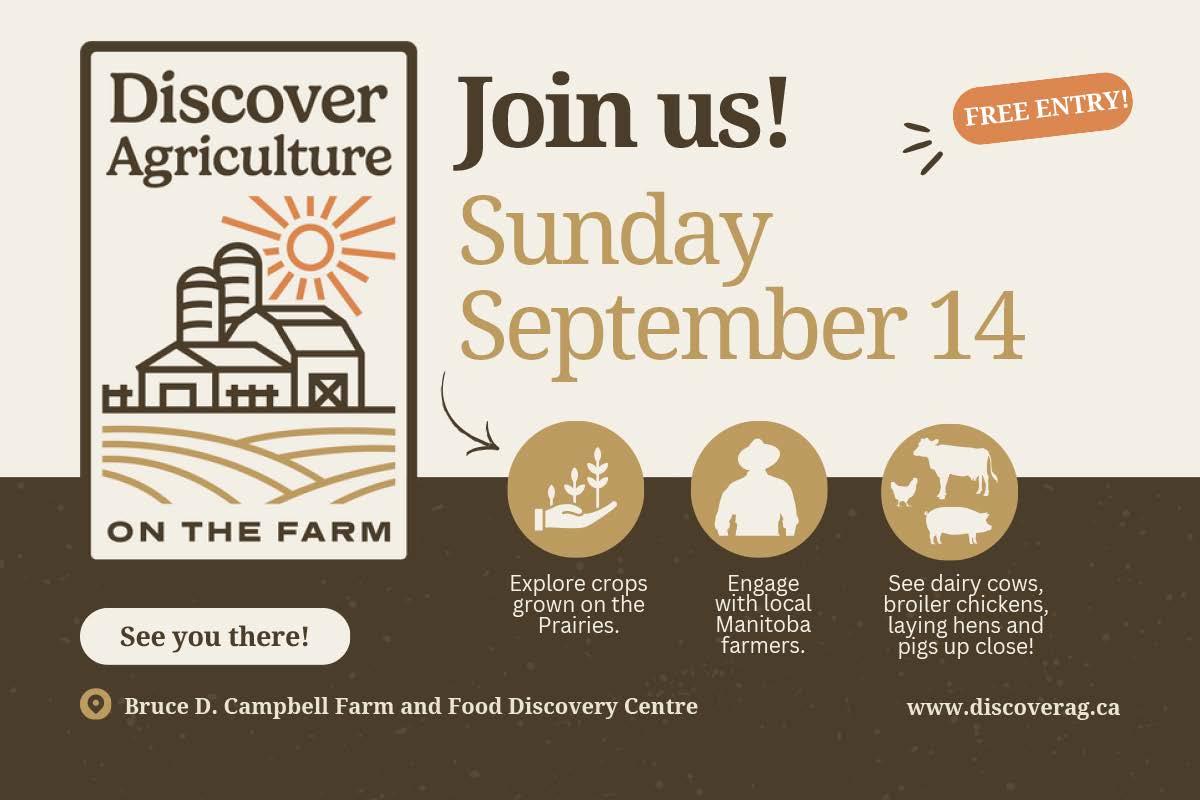
(August 7, 2025 Province of Manitoba News Release) The Manitoba government is issuing a ministerial order under the Environment Act to begin spraying for adult mosquitoes with DeltaGard 20EW because of high numbers of adult Culex tarsalis mosquitoes and evidence of a high rate of mosquito infection with West Nile virus (WNV) in the City of Winkler.
Subject to weather and site conditions, adult mosquito control will take place in the areas of, but not limited to, the City of Winkler plus an approximately three kilometres extended zone around the city. This extended zone includes the communities of Reinfeld, Chortitz and Schanzenfeld.
Adult mosquito control is expected to take place overnight between Friday, Aug. 8 and Saturday, Aug. 9, and overnight between Monday, Aug. 11 and Tuesday, Aug. 12. Fogging will proceed weather conditions permitting (will not occur if the temperature is expected to drop below 13 C, there is excessive wind or precipitation). The treatment times and area map will be available at: https://www.gov.mb.ca/health/wnv/control. html
high in Winkler and surrounding area. This risk will likely continue during the historical high-risk period (mid-July to mid-August). At this time, no locally acquired human cases of West Nile virus have been confirmed in Manitoba.
Anyone participating in outdoor activities in and around the City of Winkler, and other areas in southern Manitoba, should take steps to reduce the risk of mosquito bites and potential exposure to the virus. Key prevention measures include:
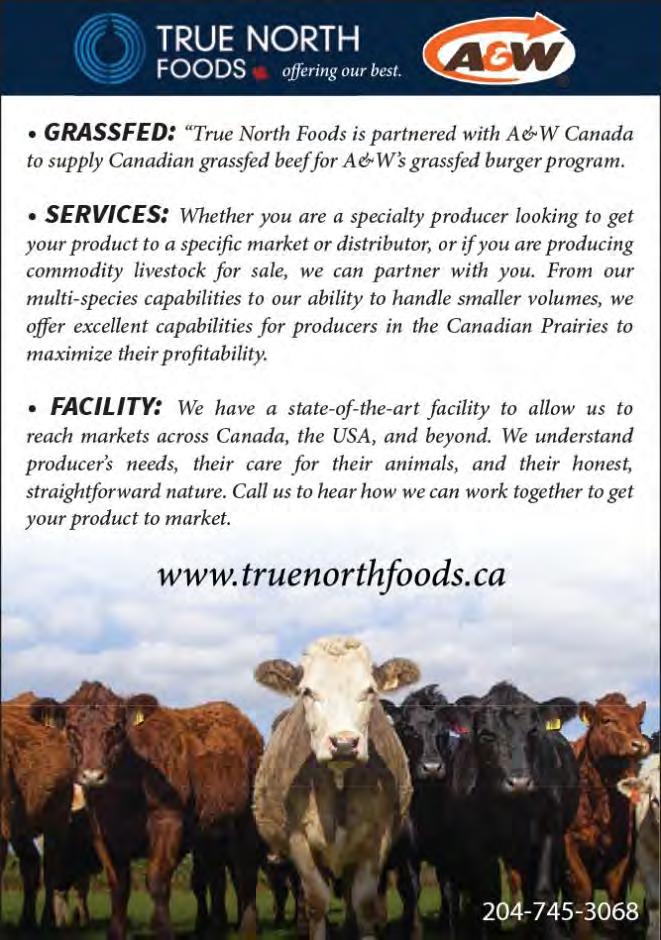
• reducing the amount of time spent outdoors during peak mosquito hours between dusk and dawn;
• using an appropriate mosquito repellent;
• wearing light-colored, loose-fitting clothing with long sleeves and pant legs;
• maintaining door and window screens; and
• cleaning and emptying yard items that collect water.
Public health officials note that recent warm, humid conditions were ideal for Culex tarsalis mosquitoes that can spread the West Nile virus (WNV). The risk for potential human exposure to WNV at this time is high in the Southern Health-Santé Sud region and is considered very
Approved by Health Canada for use in 2017, DeltaGard 20EWis classified as a reduced-risk pesticide. When applied using ultra-low volume methods and as per label directions, DeltaGard 20EW is unlikely to affect human health. For more information, visit: https://gov.mb.ca/health/publichealth/fact sheets/deltagard.pdf.
However, individuals can minimize their exposure by taking the following precautions:
• staying indoors during and immediately after spraying;
• closing all doors and windows;
• avoiding trucks while spraying is underway;
• turning off fans and air conditioners or setting them at exhaust;
• removing clothes and children's toys from outdoor areas;
• covering swimming pool surfaces;
• washing any household items or toys left outside before using them; and
• ensuring homegrown fruits and vegetables are washed before eating.
West Nile Virus is a mosquito-borne virus that can cause severe illness including encephalitis (swelling of the brain) and can sometimes result in long-term complications and death. It only takes a single bite from an infected mosquito to contract WNV. More information about West Nile virus, including prevention, symptoms, weekly average trap counts of Culex tarsalis mosquitoes, fact sheets, posters and information for municipalities and health-care providers, is available at www.gov.mb.ca/health/wnv/.
Manitobans can also contact Health Links–Info Santé at 204-788-8200 or at 1-888-315-9257 (toll-free) for more information.
(August 7, 2025 Province of Manitoba News Release) Manitoba Transportation and Infrastructure’s Emergency Management Organization is advising that provincewide state of emergency under the Emergency Measures Act will be extended to Aug. 22 due to ongoing wildfires across Manitoba.
The state of emergency was declared on July 10 and remained in effect for 30 days. This
extension will keep the state of emergency in place until Aug. 22.
For information on the status and location of active wildfires, fire restrictions and bans, evacuations and to learn how to help prevent wildfires, visit MB Ready at https://mbready.manitoba.ca

(August 8, 2025 Agriculture and Agri-Food Canada News Release) The Honourable Heath MacDonald, Minister of Agriculture and Agri-Food, has concluded a productive seven-day trade mission to Indonesia, Singapore, and the Philippines.
Representatives from Canada’s agriculture and agrifood sector joined the Minister for the mission to the region, which is already importing more than a quarter of Canada’s total agricultural exports, and poised for much more. Canadian agricultural stakeholder groups who joined Minister MacDonald on the mission included: Cereals Canada; Soy Canada; Protein Industries Canada; Canada Beef; Pulse Canada; the Canadian Pork Council; and the Canadian Cattle Association.
During the mission, Minister MacDonald met with senior government officials, industry leaders, importers and other key stakeholders to discuss boosting agricultural and agri-food trade, increased cooperation on research, innovation, food safety and technical expertise, and to promote the Canada Brand. In each country, the Minister convened meetings between industry representatives and local businesses and importers to discuss market trends, regulatory challenges, and opportunities for growth. He also attended World Food Expo, the largest agri-food and beverages trade show in the Philippines, and met with Canadian exhibitors.
Key meetings included:
• Indonesia’s Minister of Agriculture Andi Amran Sulaiman
• Indonesia’s Deputy for Food and Agriculture Coordination Ms. Widiastuti
• ASEAN Secretary-General Dr. Kao Kim Hourn
• Singapore’s Minister for Sustainability and Environment Grace Fu Hai Yein,
• The Philippines’ Secretary of Agriculture Francisco Tiu Laurel Jr.
Minister MacDonald’s mission underscores
Canada’s commitment to trade with reliable partners and growth across the Indo-Pacific region.
"Our farmers and food processors work tirelessly to produce reliable, high-quality and safe food. Because of the reputation they’ve helped build, more countries are choosing our products, and we’re absolutely focused on creating more opportunities for them by increasing and diversifying our exports, moving forward on new free trade agreements, and raising the profile of the Canada Brand worldwide, especially in areas like the Indo-Pacific.”
- The Honourable Heath MacDonald, Minister of Agriculture and Agri-Food
“It has been an honour to participate in my first international trip as President of the Canadian Cattle Association. The mission has provided excellent opportunities to grow relationships in three priority Southeast Asian markets along with the Minister of Agriculture and Agri-Food. Canadian beef producers appreciate every opportunity to diversify and gain new markets and opportunities for our nutritious and sustainable Canadian beef products. We are excited for the growth potential in the Indo-Pacific region at large, where Canadian beef is valued for our high-quality, safe product.”
- Tyler Fulton, President, Canadian Cattle Association
“The Indo-Pacific region represents a rapidly growing market for Canadian beef with tremendous potential for long-term trade partnerships. Minister MacDonald's trade mission demonstrates Canada’s commitment to advancing Canadian agriculture through active engagement with key partners. Canada Beef appreciates the support of the IndoPacific Agriculture and Agri-Food Office in Manila in building strategic relationships in the region. Reliable and predictable access along with a level playing field for Canadian beef in global markets are core to achieving a truly competitive landscape with our major competitors.”
- Eric Bienvenue, President, Canada Beef
"The Indo-Pacific region represents one of Canada's most significant and fastest-growing markets for cereals. Canada has enjoyed long-standing trade partnerships with the countries in this region, and the Minister’s presence underscores the importance of these relationships. The Indo-Pacific Agriculture and Agri-Food Office provides boots-on-the-ground trade support to regulators and exporters, and helps to uphold Canada’s reputation for clean, consistent cargos which our Indo-Pacific customers expect.”
- Dean Dias, Chief Executive Officer, Cereals Canada
“I’ve seen Minister MacDonald show our customers and their governments that in a world of chaos, they can count on Canada. Meeting customers and their governments face to face and supporting the Indo-Pacific Agriculture and Agri-Food Office delivers what our customers need. With over 70% of our soybeans exported, including $1.5 billion to the Indo-Pacific each year, when we deliver value for customers, we deliver value for farmers and the entire soy value chain.”
- Brian Innes, Executive Director, Soy Canada
“Our recent trip across the Indo-Pacific region with Minister MacDonald reaffirmed the importance of building strong, collaborative relationships with countries that share our commitment to innovation, sustainability, and food security. Canada’s plantbased food and ingredient sector offers highquality, sustainable protein options that meet the growing demand in the Indo-Pacific. By working with partners across the region, including through the Indo-Pacific Agriculture and Agri-Food Office, we can build lasting trade and business relationships that benefit both Canadians and Indo-Pacific consumers.”
- Robert Hunter, Chief Executive Officer, Protein Industries Canada
“The Indo-Pacific holds tremendous potential for Canada’s pulse sector, which is why Pulse Canada was a leading advocate for the creation of the IndoPacific Agriculture and Agri-Food Office. Pulse Canada has been working for years to diversify markets in the Indo-Pacific and unlock new opportunities for Canadian pulse growers, processors, and exporters, and we are pleased to see the federal government placing a stronger focus on this region and aligning with industry efforts to build long-term, sustainable trade relationships.”
- Julianne Curran, Vice President, Market Innovation, Pulse Canada
"We were thrilled to join the Minister for his firstever visit to the ASEAN region. As a supporter of the Indo-Pacific Agricultural and Agri-Food Office and of diversifying our trading relationships, the Canadian Pork Council appreciated the wonderful conversations we had with local producers and buyers. We look forward to continuing these relationships as we help bring the world's best pork, Canadian pork, to markets around the world.”
- René Roy, Chair, Canadian Pork Council
• The Indo-Pacific area includes 40 economies, over 4 billion people, and $47 trillion in economic activity. It's the world's fastest-growing region, and home to 11 of Canada's top 20 trading partners.
• Launched in 2022, Canada's Indo-Pacific Strategy has committed to advancing 5 strategic objectives from security and trade to sustainability and regional engagement. It reflects Canada's commitment to inclusive growth, a rulesbased international order, and partnerships that create shared prosperity with IndoPacific economies.
• The Indo-Pacific is Canada's second-largest regional export market and trading partner. In 2024, Canada exported $22 billion worth of agriculture and agri-food products to the
Indo-Pacific region, and it's a growing market.
• There are potential opportunities for Canada to grow its market share. Last year, agri-food and seafood exports represented nearly 29.6% of Canada's total merchandise exports to the Indo-Pacific region, being ranked as the largest sector for merchandise exports.
• On December 2, 2024, Canada and Indonesia signed a joint statement announcing the conclusion of negotiations for a Canada-Indonesia Comprehensive Economic Partnership Agreement (CEPA), and committed to sign the CEPA in 2025.
• Indonesia is a G20 country and Southeast Asia's largest economy. With a population of 279 million and GDP of close to $1.9 trillion in 2023, the Indonesian market holds significant potential for Canadian traders, investors, and service providers.
• Once concluded and in force, the ASEANCanada Free Trade Agreement (ACAFTA) will open new pathways for trade and investment between Canada and ASEAN
member states, including the Philippines. For our agri-food sectors, it means expanded market access, reduced trade barriers, and a more predictable environment for businesses in Canada, the Philippines and our other ASEAN regional trading partners.
• Canada and the Philippines also launched exploratory discussions for a potential bilateral FTA that would build on the ACAFTA once in force, allowing for higher standards and the further elimination of tariffs and barriers to trade between Canada and the Philippines.
• World Food Expo is the largest agri-food and beverages trade show in the Philippines. The four-day tradeshow attracts 51,000 visitors, including key agrifood stakeholders such as suppliers, importers, traders, distributors, retailers, food service operators, and the general public. In total there were 59 Canadian delegates from 33 companies, industry associations and provinces exhibiting this year at the expo. Applications due December 13
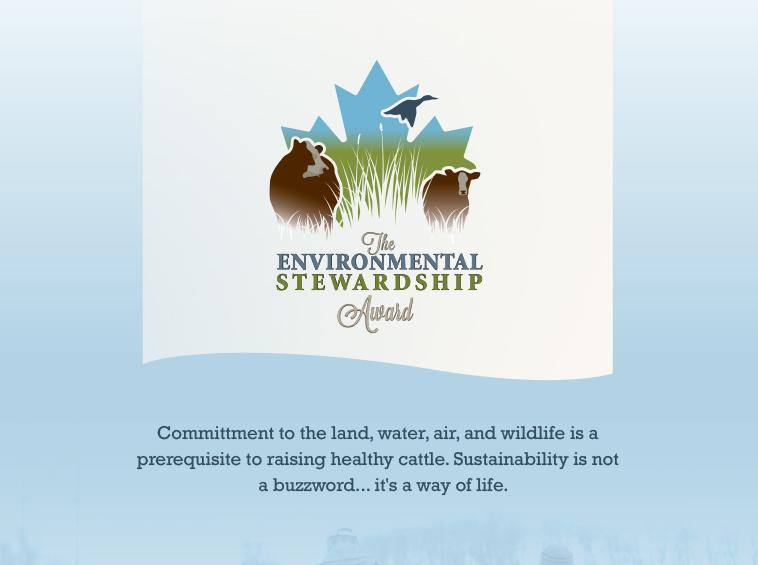

August 5, 2025
“In the evolving global trading environment, the Canada-United States-Mexico Agreement (CUSMA) has proven to be the gold standard for trade agreements. As we approach the six-year review of that agreement, the Canadian Cattle Association (CCA) is pleased that the Prime Minister and “Team Canada” have remained focused on the review while ensuring that products that comply with CUSMA remain exempt from tariffs in the ongoing trade negotiations with the United States.
“This is vitally important to cattle and beef producers on both sides of the Canada/US border. The North American beef industry is highly integrated, with Canadian and American beef farmers and ranchers working together to create the high-quality beef demanded by consumers around the world. CUSMA has played a key role in allowing beef producers in the US and Canada to reap the benefits flowing from the economies created by that integration.
“CCA looks forward to hosting the North American Beef Cattle Leaders’ trilateral meeting in September to discuss trade, animal health and how we can further enhance North America’s beef industry competitiveness in global markets. CCA will continue to work with the Government of Canada, provincial members, and engage with stakeholders on both sides of the border to advocate for positive outcomes for the North American beef sector in preparation for the 2026 CUSMA review.”
Tyler Fulton, President Canadian Cattle Association
For further information, contact:
Tina Zakowsky Communications Manager Canadian Cattle Association 403-451-0931 | zakowskyt@cattle.ca

An outcome-based approach to beef sustainability no matter your operation!
Review CRSB Certified program documents
Sustainable Beef Production Standard, Assurance Protocols, Chain of Custody Requirements, Communications, Claims & Labelling Manual at crsbcertified.ca.
Contact a CRSB-approved Certification Body
Choose the one that is right for you.
The Certification Body will conduct an on-farm verification against the indicators in the CRSB Standard. Upon successful completion, a certificate is issued.
Congratulations! You are CRSB Certified!
Complete the Qualifying Cattle Requirements
Make the most of your certification by giving your cattle a chance to qualify for CRSB Certified supply Chains. (see reverse)


Make the most of your certification by giving your cattle a chance to qualify through a CRSB Certified supply chain. Follow these essential steps.
Get and Maintain CRSB Certification through the Certification Body (CB) of your choice.
Consent to sharing information with CCIA for CRSB Certified Chain of Custody purposes. Complete during the certification process through your CB.
•Contact and operation name • Email • Mailing address
•CLTS account ID • Audit type • Certificate number • Certification date
•Certification status change or de-certification date
for the cattle born and tagged on your operation.
* Animals born on your operation within six months of certification date are eligible.
to the CLTS each time eligible cattle move to a new operation.
* Qualifying animals moved-in from another CRSB Certified Operation within six months of CRSB certification date are eligible.

